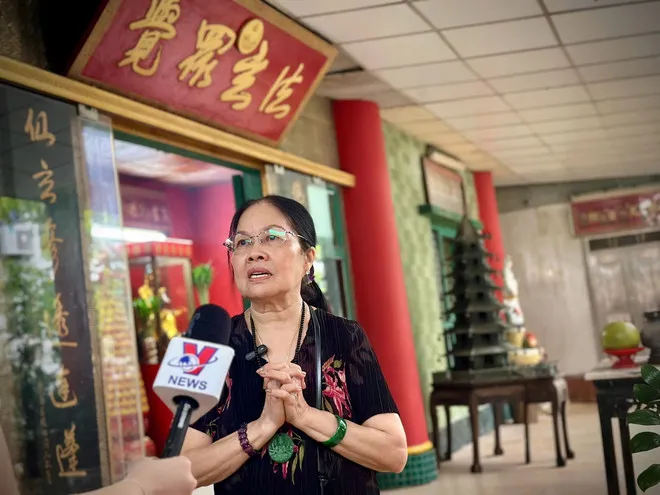The Ghost Festival, also known as Vu Lan, in the seventh lunar month is more than just a religious holiday; it’s an integral part of the spiritual and cultural life of Vietnamese people. This is a time for each person to express sincerity and gratitude towards ancestors, grandparents, parents, and the deceased. Let’s explore the cultural beauty and profound meaning of this festival in the Vietnamese psyche.
Ghost Festival: Origins and Deep Meanings
The Ghost Festival in the seventh lunar month, a significant holiday in Vietnamese culture, is imbued with spirituality and filial piety. This day is associated with two main events: the Vu Lan ceremony honoring filial piety and the wandering souls ritual. The Vu Lan ceremony originates from the legend of Mục Kiền Liên rescuing his mother from the underworld, embodying the principle of “drinking water, remember the source,” gratitude towards parents and ancestors.
The wandering souls ritual, on the other hand, is an act of sharing and compassion for wandering, homeless spirits. These two activities, though different in form, share a common goal: to promote good values, and wish for peace and serenity for everyone.
Ghost Festival Rituals in Vietnamese Families
During this time, Vietnamese families typically prepare two main offering trays: one for Buddha and one for ancestors.
Offering Tray to Buddha
The offering tray to Buddha is often solemnly arranged with pure vegetarian dishes such as sticky rice, sweet soup, fruits, various types of cakes, and especially, ‘chè kho’ (sweet mung bean porridge), which is indispensable. Offering vegetarian dishes expresses reverence, good intentions, and the desire to pray for the souls of the deceased to be liberated. 
Ancestral Offering Tray
The ancestral offering tray usually includes a full array of traditional savory dishes that the deceased enjoyed when they were alive. Besides, incense, flowers, betel leaves, areca nuts, and votive papers are indispensable. Offering to ancestors expresses gratitude, remembrance, and the wish for ancestors to bless the family with peace and happiness.
Ghost Festival Prayers
Prayers are an important part of the Ghost Festival ritual. The prayers express sincerity, gratitude, and the wishes of the homeowner. Depending on the customs of each region and family, the prayers may vary, but they all aim to pray for the deceased to be reborn into a better life and for peace for the family.
Ghost Festival at Pagodas: Returning to the Spiritual Realm
In addition to worshiping at home, Vietnamese people also have a tradition of going to pagodas during the Ghost Festival. At the pagoda, people offer incense, worship Buddha, listen to Buddhist scriptures, and participate in charity activities. This is an opportunity to return to the spiritual realm, purify the soul, and pray for peace for family and loved ones. 
Some pagodas also organize requiem ceremonies and Vu Lan ceremonies honoring filial piety, helping people express their reverence for ancestors and parents, and pray for the deceased to be liberated.
Other Meaningful Activities During the Ghost Festival
In addition to worship rituals, the Ghost Festival is also an occasion for people to perform other meaningful actions:
- Releasing animals: Releasing animals back to nature, showing compassion and benevolence.
- Doing charity: Helping people in difficult circumstances, sharing love.
- Visiting graves: Cleaning and burning incense to remember deceased loved ones.
- Giving gifts to parents: Expressing filial piety, gratitude for the merit of birth and nurturing.
These activities not only bring joy and peace of mind to oneself but also contribute to spreading good values in the community.
Influence of Ghost Festival Culture on Social Life
The Ghost Festival culture is not only a beautiful traditional custom but also has a profound influence on Vietnamese social life:
- Contributing to moral education: Spreading humanistic values such as filial piety, gratitude, and love.
- Strengthening family bonds: Creating opportunities for family members to reunite and bond with each other.
- Promoting charitable activities: Encouraging people to share and help those in difficult circumstances.
- Preserving and promoting national cultural identity: Preserving the good customs and traditions of the Vietnamese people.
Ghost Festival in the Context of Cultural Integration
In the context of cultural integration, the Ghost Festival still maintains an important position in the spiritual life of Vietnamese people. Despite many changes in form, the humanistic meaning and moral values of this festival are still preserved and promoted.
Today, many young people have more creative ways of expressing filial piety that are suitable for modern life, such as giving gifts, taking parents on trips, or simply spending time talking and listening to parents.
Conclusion
The Ghost Festival culture is an indispensable part of the spiritual and cultural life of Vietnamese people. It is not only an opportunity to remember and pay tribute to ancestors and parents but also a chance for each person to reflect on themselves, aim for good values, and live more meaningfully. As time passes, the humanistic values and profound meaning of the Ghost Festival will forever endure in the Vietnamese psyche. Let’s cherish and preserve this beautiful traditional culture to spread good values to future generations.